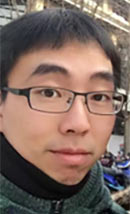Dec
06

Date: 6 December 2023
Time: 3:00 PM ET (New York Time)
Presenter(s): Dr. Xiaowen Dong
SPS-DSI Webinar Series: Data SciEnce on GrAphS (DEGAS)
Initiated by the Data Science Initiative of IEEE Signal Processing Society, the DEGAS Webinar Series serves to provide the SP community with updates and advances in learning and inference on graphs. Signal processing and machine learning often deal with data living in regular domains such as space and time.
This webinar series will cover the extension of these methods to network data, including topics such as graph filtering, graph sampling, spectral analysis of network data, graph topology identification, geometric deep learning, and so on. Applications can, for instance, be found in image processing, social networks, epidemics, wireless communications, brain science, recommender systems, and sensor networks.
Webinars are hosted on Zoom, with recordings available on the IEEE SPS YouTube channel following the live event. Each speaker presentation is followed by time for Q&A and discussions.
Abstract
Graph-based signal processing and machine learning are recent techniques that have been developed to handle graph-structured data and have seen applications in such diverse fields as drug discovery, fake news detection, and traffic prediction. Despite the encouraging empirical results, a theoretical understanding of the robustness of these models against perturbation to the input graph domain has been lacking. In this talk, I will present our results on the stability bounds of spectral graph filters as well as other recent work on the robustness of graph machine learning models. A commonality of these studies is that they all share a topological perspective, that is, linking robustness to topological properties of the graph domain and perturbation. This contributes to a better understanding of robustness hence the deployment of graph-based models in real-world scenarios.
Biography
 Xiaowen Dong received the Ph.D. degree from the Swiss Federal Institute of Technology, Lausanne, Switzerland in 2014.
Xiaowen Dong received the Ph.D. degree from the Swiss Federal Institute of Technology, Lausanne, Switzerland in 2014.
He is an associate professor in the Department of Engineering Science at the University of Oxford, where he is a member of both the Machine Learning Research Group and the Oxford-Man Institute. Prior to joining Oxford, he was a postdoctoral associate in the MIT Media Lab, where he remains as a research affiliate. His main research interests concern signal processing and machine learning techniques for analysing network data, and their applications in social and economic sciences.
